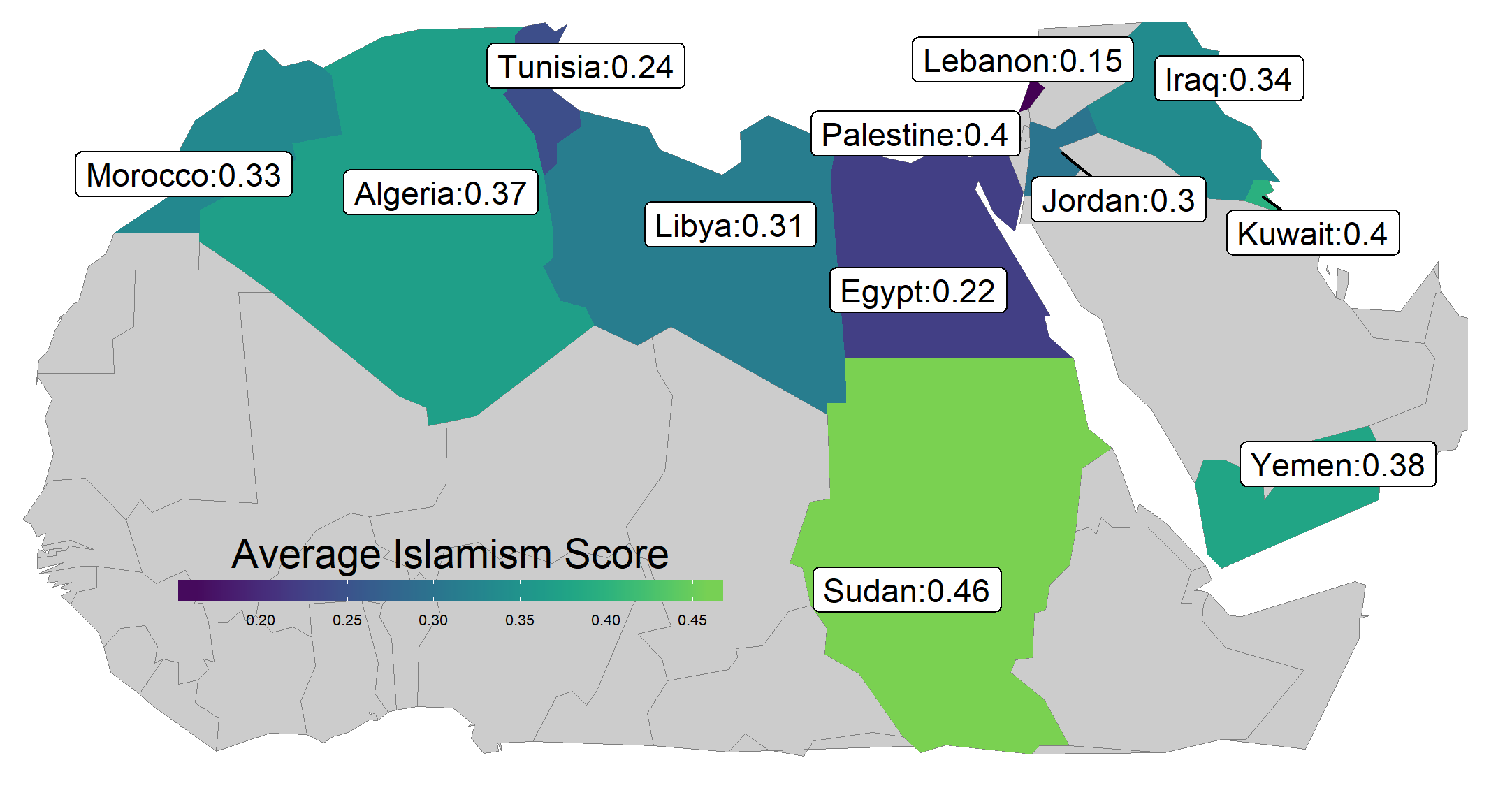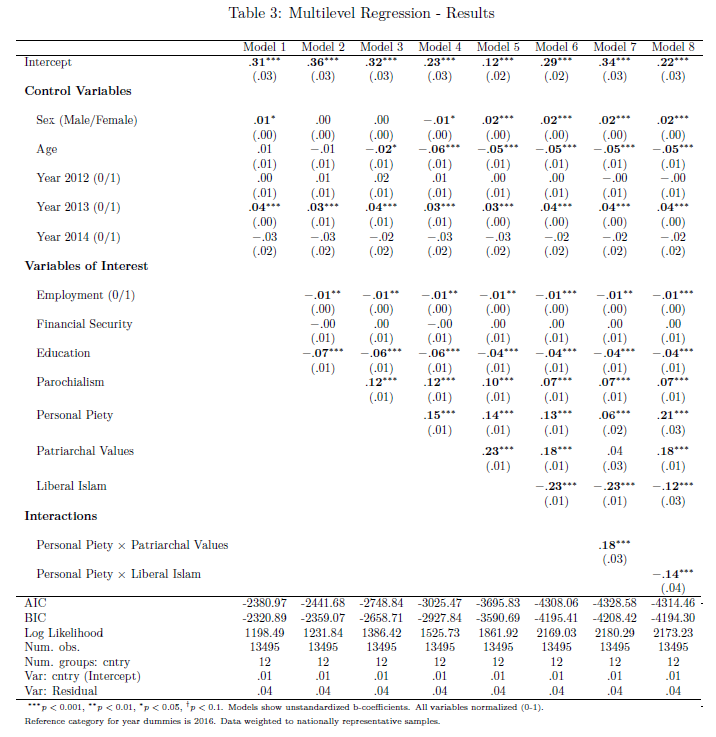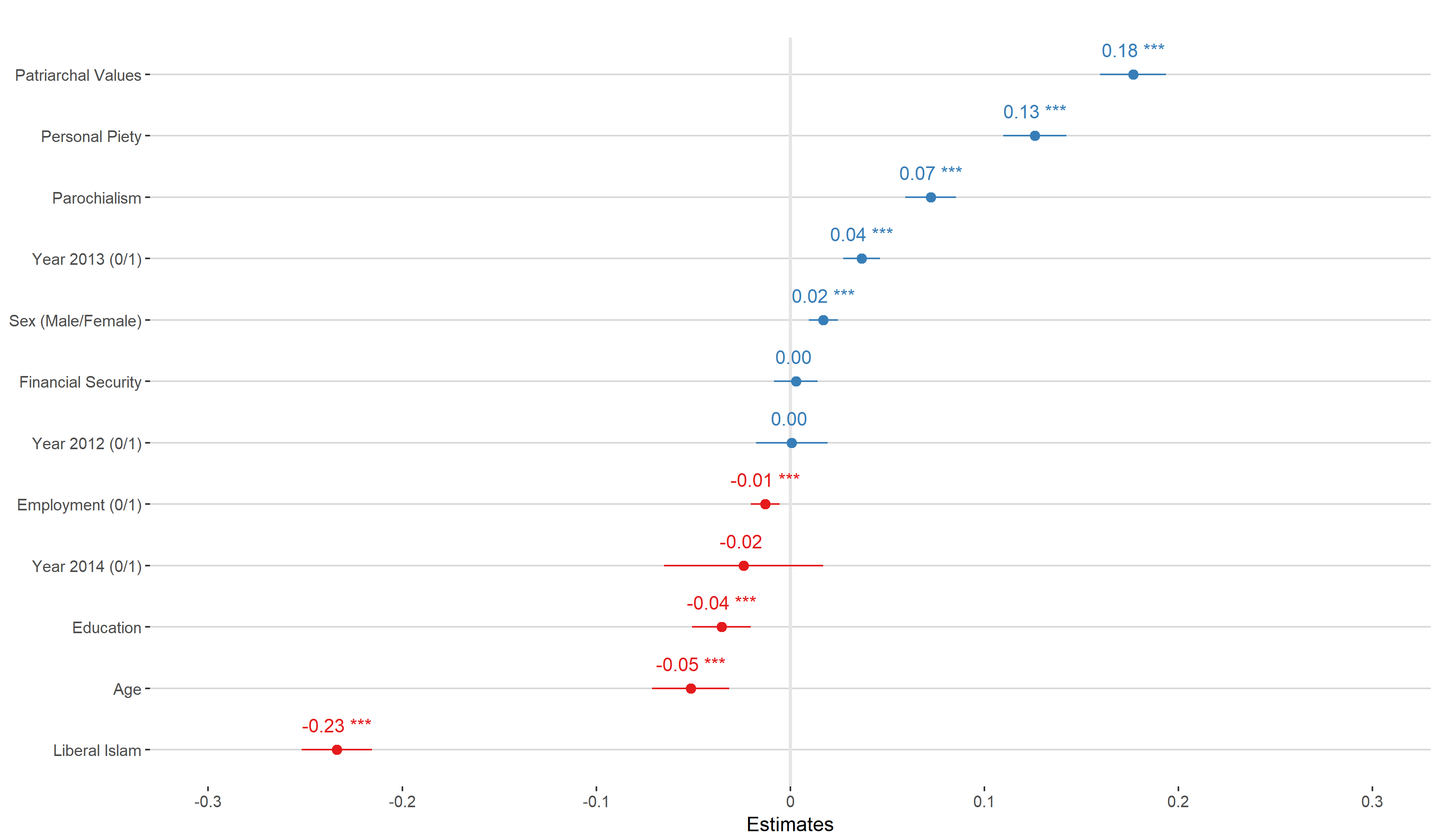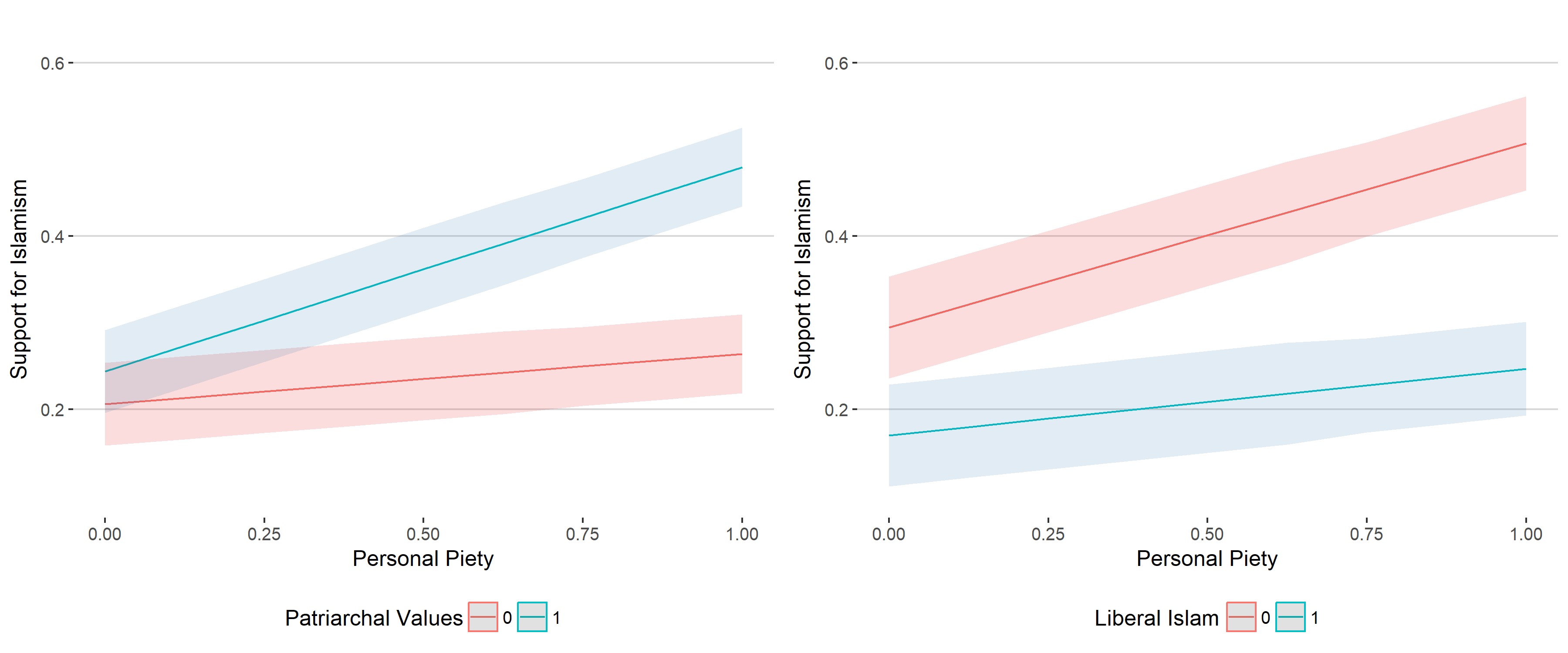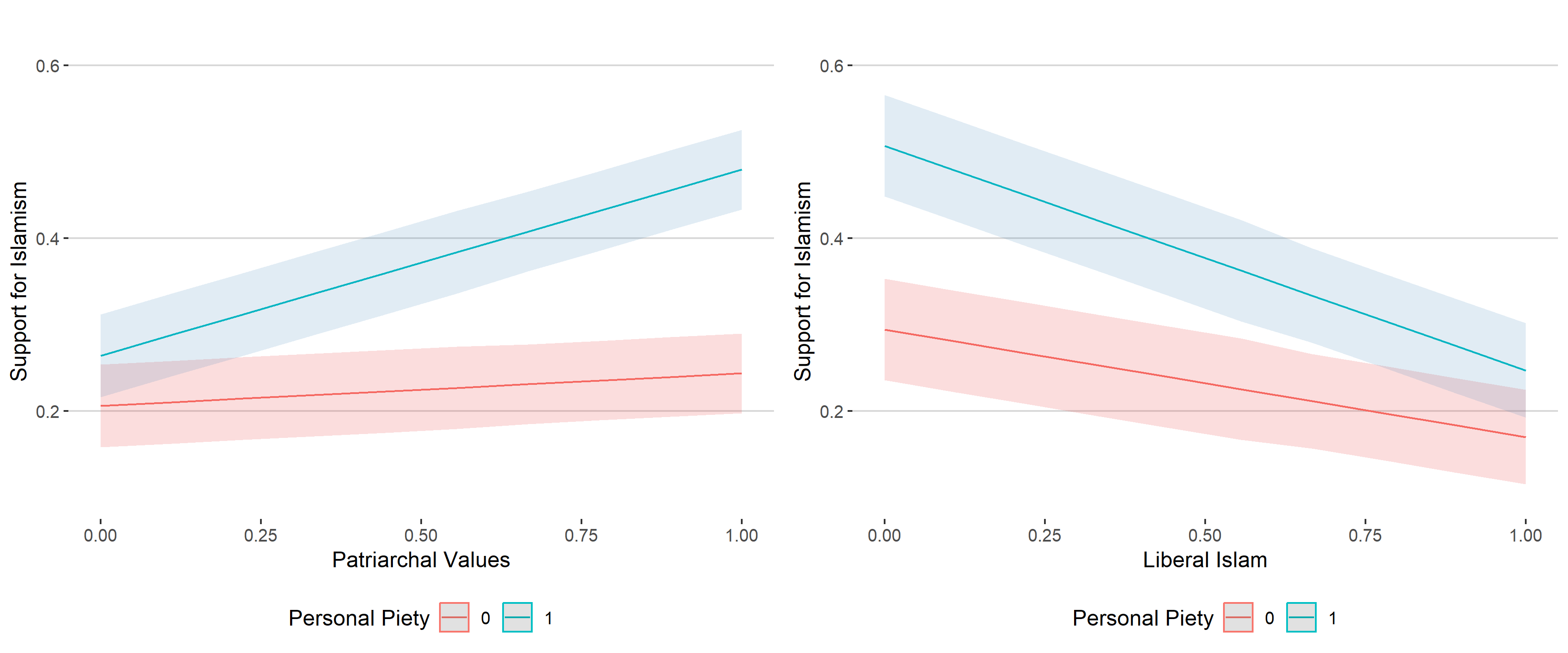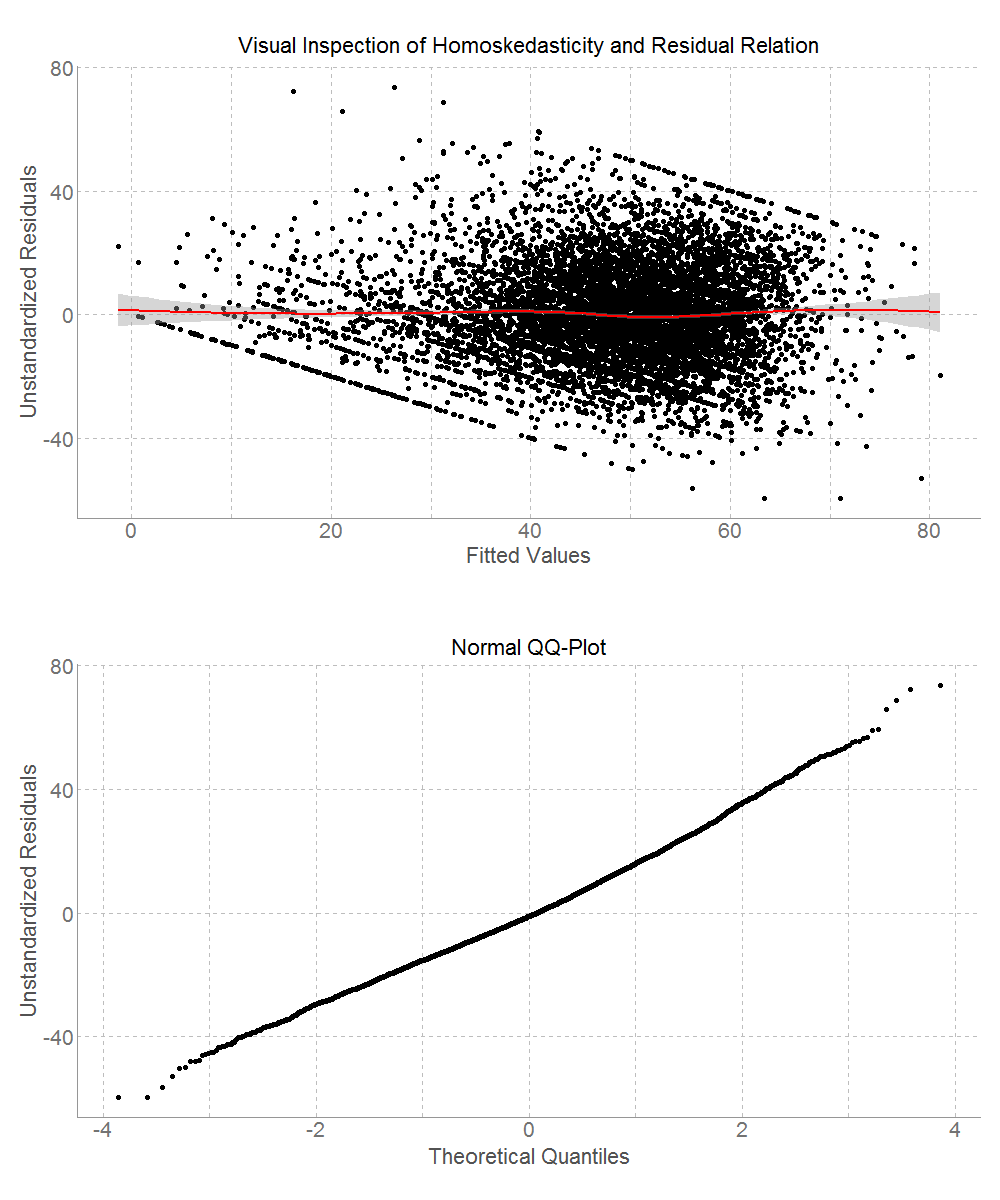Godly Governance
Examining Support for Religious Governance
in Arab Muslim Majority Countries
Fabio Votta
favstats
favstats.eu
@FabioFavusMaxim
fabio.votta@gmail.com
2018-29-06
Slides available at godly-governance.netlify.com
Research Question:
What role does religiosity play in support for religious governance?
Starting Point
- A commonly proposed explanation for the support for religious governance is that devout Muslims simply support it out of their religious convictions
Starting Point
A commonly proposed explanation for the support for religious governance is that devout Muslims simply support it out of their religious convictions
This proposed relationship falls in danger to become tautological and essentialist in nature, leading to explanations that Muslims support religious governance because they are Muslims
Starting Point
A commonly proposed explanation for the support for religious governance is that devout Muslims simply support it out of their religious convictions
This proposed relationship falls in danger to become tautological and essentialist in nature, leading to explanations that Muslims support religious governance because they are Muslims
Tessler describes the problematic nature of such arguments as this
"mistakenly assume[s] that there are clear and uncontested definitions of what constitute [...] 'Muslim' orientations" and "[...] ignores the significant differences that exist between Arab and Muslim countries, as well as the equally important individual-level variation that exists within countries [...] associated with age, education, class, gender, ethnicity, and residence."
Hypotheses
Secularization Theory (Norris & Inglehart, 2011)
H1a: Increasing individual material resources marginalize support for religious governance.
H1b: Increasing intellectual resources marginalize support for religious governance.
Hypotheses
Secularization Theory (Norris & Inglehart, 2011)
H1a: Increasing individual material resources marginalize support for religious governance.
H1b: Increasing intellectual resources marginalize support for religious governance.
Parochialism
H2: Parochial viewpoints increase support for religious governance.
Hypotheses
Secularization Theory (Norris & Inglehart, 2011)
H1a: Increasing individual material resources marginalize support for religious governance.
H1b: Increasing intellectual resources marginalize support for religious governance.
Parochialism
H2: Parochial viewpoints increase support for religious governance.
Patriarchal Values
H3: Patriarchal Values increase support for religious governance.
Hypotheses
The Role of Religiosity
H4a: Religiosity increases support for religious governance.
H4b: Liberal interpretations of Islam decrease the support for religious governance.
Hypotheses
The Role of Religiosity
H4a: Religiosity increases support for religious governance.
H4b: Liberal interpretations of Islam decrease the support for religious governance.
Interactions
H4c: If an individual endorses patriarchal values, religiosity has a stronger effect on the support for religious governance
Hypotheses
The Role of Religiosity
H4a: Religiosity increases support for religious governance.
H4b: Liberal interpretations of Islam decrease the support for religious governance.
Interactions
H4c: If an individual endorses patriarchal values, religiosity has a stronger effect on the support for religious governance
H4d: If an individual endorses liberal interpretations of Islam, religiosity has a diminished or even reversed effect on the support for religious governance.
Data & Methodology
Data & Methodology
Merging of the following datasets:
- Arabbarometer Survey Round 3 (data from 2014-2015)
- Arabbarometer Survey Round 4 (data from 2015-2016)
In total 13.495 individual cases in 12 Arab countries
- weighted with provided weight
Dependent Variable - Support for Islamism
To what extent [do] you think these systems would be appropriate for your country?
Religious leaders (imams, preachers, priests) should have influence over government decisions
Your country is better off if religious people hold public positions in the state
A system governed by Islamic law without elections or political parties
A parliamentary system (based on Islamic law) in which only Islamist parties compete in parliamentary elections
Dependent Variable - Support for Islamism
To what extent [do] you think these systems would be appropriate for your country?
Religious leaders (imams, preachers, priests) should have influence over government decisions
Your country is better off if religious people hold public positions in the state
A system governed by Islamic law without elections or political parties
A parliamentary system (based on Islamic law) in which only Islamist parties compete in parliamentary elections
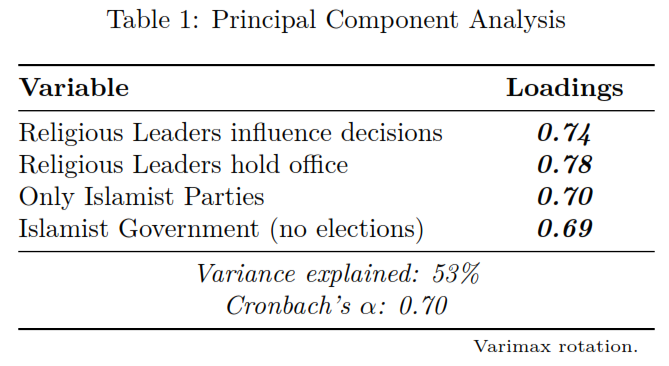
Independent Variables
Secularization Theory
- Employment (0/1)
- Financial Security
- Education
Independent Variables
Secularization Theory
- Employment (0/1)
- Financial Security
- Education
Parochialism
- Do you think that the increase in global connectivity is a good or a bad thing for the society?
Independent Variables
Secularization Theory
- Employment (0/1)
- Financial Security
- Education
Parochialism
- Do you think that the increase in global connectivity is a good or a bad thing for the society?
Religiosity
- Personal Piety
- Do you pray daily?
- Do you listen to or read the Quran?
Independent Variables
Secularization Theory
- Employment (0/1)
- Financial Security
- Education
Parochialism
- Do you think that the increase in global connectivity is a good or a bad thing for the society?
Religiosity
- Personal Piety
- Do you pray daily?
- Do you listen to or read the Quran?
Patriarchal Values
- A married woman can work outside the home.
- In general, men are better at political leadership than women.
- University education for males is more important than university education for females.
Independent Variables
Liberal Islam
The opinions of Islamic jurists and religious scholars differ and I want to ask to what extent you agree or disagree with some of these issues?
- Democracy is a system that contradicts the teachings of Islam.
- Gender-mixed education should be allowed in universities.
- Women should wear modest clothes without needing to wear hijab.
Independent Variables
Liberal Islam
The opinions of Islamic jurists and religious scholars differ and I want to ask to what extent you agree or disagree with some of these issues?
- Democracy is a system that contradicts the teachings of Islam.
- Gender-mixed education should be allowed in universities.
- Women should wear modest clothes without needing to wear hijab.
Control Variables
- Sex (Male/Female)
- Age
- Year 2012 (0/1)
- Year 2013 (0/1)
- Year 2014 (0/1)
Analysis & Results
Analysis
Individuals are nested into countries, so that application of multilevel models is suitable
ICC: 14.66% of the variance of Islamism is bound on the country-level
Sequential approach
- Models 1-5 continually add one variable to the model
- Model 6 shows the main model with all variables
- Model 7-8 show estimated interaction effects
No severe violations of residual assumptions can be found
Conclusions & Future Research
Conclusions & Future Research
- Financial Security shows no significant effect, whereas increased education and unemployment do
Conclusions & Future Research
Financial Security shows no significant effect, whereas increased education and unemployment do
Parochialism and Patriarchal values both seem to increase the support for religious governance
Conclusions & Future Research
Financial Security shows no significant effect, whereas increased education and unemployment do
Parochialism and Patriarchal values both seem to increase the support for religious governance
Religion does matter and it matters a lot
- However: Liberal interpretations of Islam decrease the support for religious governance
- The moderating effects are strongest for the most religious individuals
Conclusions & Future Research
Financial Security shows no significant effect, whereas increased education and unemployment do
Parochialism and Patriarchal values both seem to increase the support for religious governance
Religion does matter and it matters a lot
- However: Liberal interpretations of Islam decrease the support for religious governance
- The moderating effects are strongest for the most religious individuals
- Further studies in the field should account for the very diverse interpretations and multidimensionality of religion and religiosity in that context.
Conclusions & Future Research
Financial Security shows no significant effect, whereas increased education and unemployment do
Parochialism and Patriarchal values both seem to increase the support for religious governance
Religion does matter and it matters a lot
- However: Liberal interpretations of Islam decrease the support for religious governance
- The moderating effects are strongest for the most religious individuals
Further studies in the field should account for the very diverse interpretations and multidimensionality of religion and religiosity in that context.
Much variation has been found between countries
- Future research should consider case-studies of individual countries
Thank You!
Full Paper: Godly Governance
Slides: godly-governance.netlify.com
Code and Data on GitHub
References
Norris, P., & Inglehart, R. (2011). Sacred and secular: Religion and politics worldwide. Cambridge University Press.
Tessler, M. (2015). Islam and Politics in the Middle East: Explaining the Views of Ordinary Citizens. Indiana University Press.
